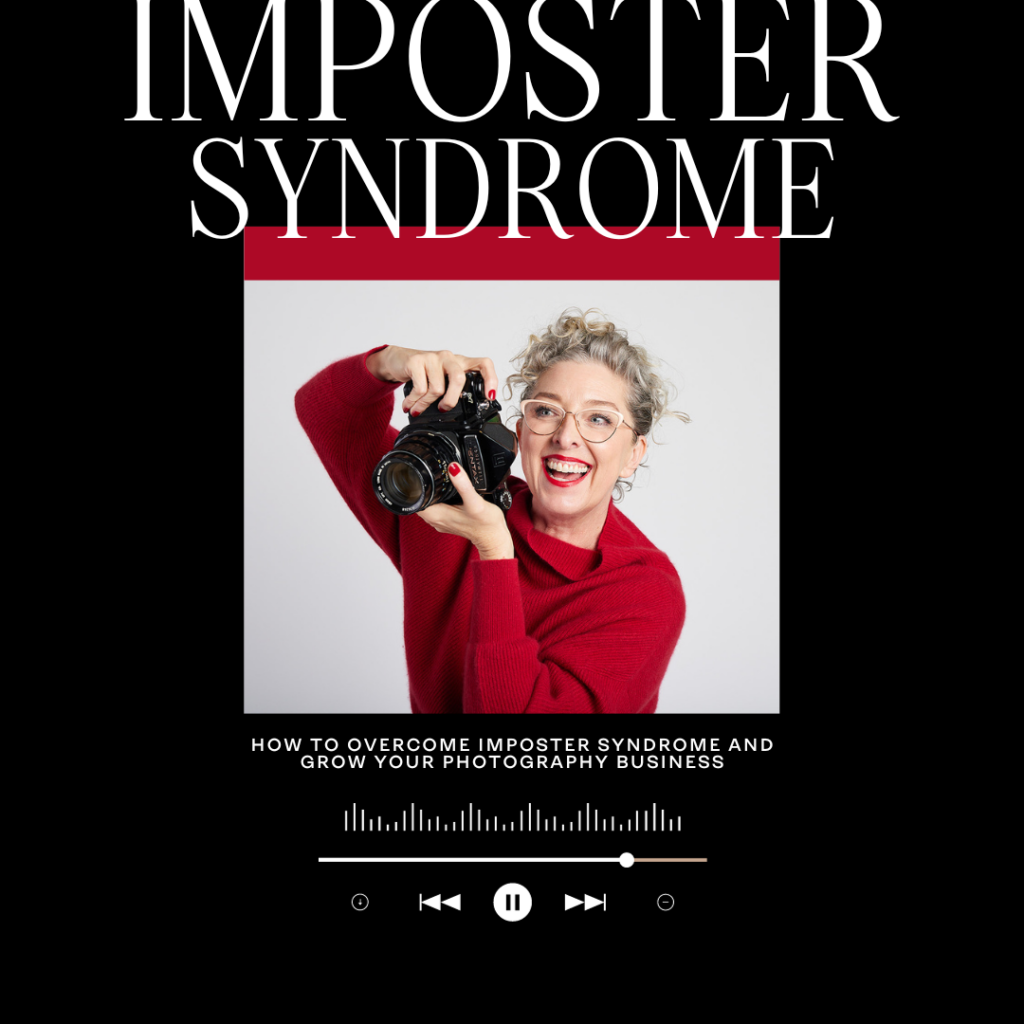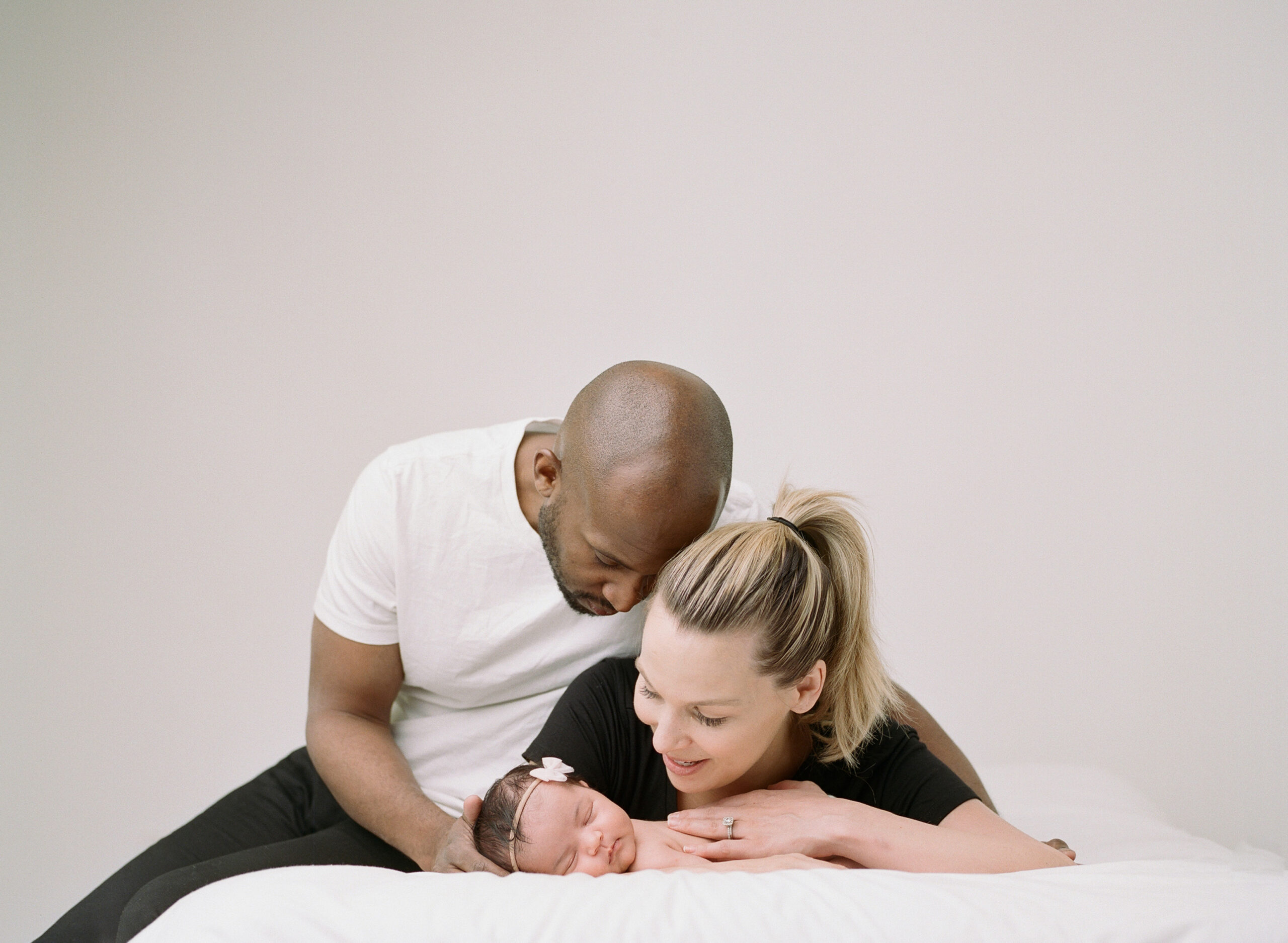
Hello and welcome to Unpopular Opinions with me, Sandra Coan. I’m an award-winning photographer and industry educator, bestselling author and a proud Westcott Top pro. I’ve been a professional photographer for over 25 years and I have a lot of opinions about photography and the photography industry on this podcast. I’m sharing them all. So if you are someone who is ready for some real honest conversation about the art and the business of photography, this is the place for you.
The number one question that I see photographers struggle with is: Am I good enough?
Am I ready to put myself out there? I’ve seen it hold people back from charging a profitable wage and setting healthy boundaries in their business. It is a recipe for burnout and it is rooted in imposter syndrome, which of course is what we are going to talk about today. According to my research, 70% of people report having felt imposter syndrome at some point in their lives and statistically women, minorities and creatives tend to be impacted the most.
Imposter syndrome can get the best of you no matter how long you’ve been doing something, that feeling that you’re a fraud or fake or that you don’t deserve the success you have.
Why Imposter Syndrome Affects Photographers
Anyone can call themselves a photographer. Anybody can pick up a camera, take a picture, and even start charging for their services. In fact, that is how most of us get started. I think it’s wonderful that we’re in an industry that you can be self-taught and make it.
But I also know that being self-taught can lead to self-doubt and a lot of mistakes. Even if you do have a photography degree, you’ve probably never been trained in how to properly run a photography business or how to properly market yourself and that can leave you feeling unprepared and unsure. Over the years, I’ve seen too many talented photographers give up on their dreams because they lacked the confidence to say “I am good enough, my work is awesome” or they’ve lacked technical and business know-how. I’ve seen people undervalue their work and doubt that their work is worth it.
The real problem is that they just are not given the right steps in the right order to get them where they want to be in their business. That’s a shame because when that happens, the world is missing out on your unique artistic magic. I happen to believe that as photographers we’re called to do this and everybody has something unique and special and important to put out into the world.
If you have ever felt this way, it’s not your fault.
The truth is, despite our best intentions, I personally believe that the current model for photography education of leans into this. It results in you, the photographer, spending your hard earned dollars, investing your time, investing your money, but never actually getting what you need to feel qualified to feel confident, to feel prepared to build and grow a successful photography business.
Instead, you stay stuck in a constant cycle of doubting yourself. It puts you in this hamster wheel of constantly feeling like you need to learn, you need to do more before you’re ready, all while feeling unqualified, insecure and inadequate.
My Journey
When I became a full time photographer, I didn’t know the first thing about how to run a business or market myself. I lacked a lot of the technical skill that I needed to be able to create consistently professional quality images. I struggled to find clients and I didn’t know how to set my prices. Within five years I ended up being burnt out, broke and ready to quit. But I had twins in 2006 and I didn’t want to leave them to go back to teaching elementary school.
I really wanted a job that would allow me to be a full-time stay-at-home mom, while also making the money that my family needed to survive. So instead of quitting, I got curious and I asked myself, what do I need to do to make this work? That question led me to a lot of studying. In the process, I developed a method for creating natural looking night with strobes and flash that brought much needed consistency to my work. I started creating routines in my business, established a posing system and built a signature style. I studied branding and marketing and sales and began making intentional choices in my business that were backed by research instead of just guessing my way through.
My hard work paid off.
I realized that I wanted to help photographers find success. But instead of taking what I knew about education from my experience as a teacher, I followed the lead of others in the photography education space and I did what everybody does. I made a series of classes around specific topics – lighting, posing, branding, and marketing. All great classes, teaching information that people needed to be successful as photographers. But I started noticing a big problem.
Even though my classes were good and my students learned exactly what I wanted them to learn in each class, many of them were still struggling with confidence. I would watch the same people take class after class after class, learn the skill, get really good at the skill, but still not make noticeable progress in their businesses. As an educator, that bothered me.
Education is intended to move people forward and I wasn’t seeing that happen.
I spent a lot of time trying to figure out why. Why are people learning these skills and still not feeling confident? I realized there was a disconnect between the classes and real world application for my students. The norm in the photography in education industry is that instructors teach specialized targeted skills, and you the student choose what skill you think you need to learn. This system makes the photography education industry a ton of money, but it keeps you stuck, constantly seeking something, but never really knowing if your work is good enough. You spend a ton of money on classes, but you don’t see any real return on your investment for your learning.
How do you know if you’re on the right path?
The photography education industry is made up of talented, well-meaning artists who truly want to help other photographer, but the system is broken because it was created by artists, not necessarily by educators. To be successful at your art and at your business, you need a place where you can learn everything, even the things you don’t know you need to know. You need a safe and supportive community that is open, honest, and free of gatekeeping. You need feedback and mentoring so that you know that you’re on the right path. You also need proof of mastery.
You can try to get all of that through classes and masterminds and workshops and conferences or you can join us inside of Sandra Coan Certification because my certification program is a one-stop shop. Not only are you going to get the education, but also critique, feedback, one-on-one mentoring, coaching, and proof of mastery.
Sandra Coan Certification
There’s nothing like it currently offered in the photography community, but my prediction is that there will be soon because people are gonna see I’m onto something. Not only are tackling the learning and the education, but also those critical pieces that are missing in other parts of the industry: critique, feedback, one-on-one mentoring, and proof of mastery. Here are some testimonials from students currently in the program:
I came into certification to help shed the dreaded imposter syndrome and I’m feeling it peeling off with every session.
Angela, currently enrolled in SCC
I needed this. I’ve been searching high and low for a mentor who would not only openly teach me but would encourage me and guide me. Seriously, three months into the program and my photography has vastly improved.
Mandy, currently enrolled in SCC
What Sets Sandra Coan Certification Apart?
- Professional Certification Program: This isn’t your typical online class; it’s a professional certification program tailored for photographers seeking success in the field of maternity, newborn, family, and portrait photography.
- One-on-One Mentoring and Group Coaching: Gain invaluable insights through two monthly calls, offering individual mentoring and constructive group critiques. Benefit from both online and in-person training, including retreats hosted at Sandra’s studio in Seattle.
- Comprehensive Curriculum: Inside the program, you receive detailed technical training covering lighting, posing, session flow, and processing. The scope extends beyond photography, encompassing business and branding essentials, such as portfolio curation, brand building, website design, and marketing strategy.
The Perks of Joining Sandra Coan Certification:
- Mentoring and Critiques: Experience personalized feedback on your craft, with one-on-one critiques and portfolio curation assistance.
- Community Engagement: Be part of an exclusive community with monthly group coaching calls, members-only photo contests, and an annual in-person retreat supported by industry-leading brands like Westcott, BNH, and Millers.
- Recognition and Networking: Achieve a professional certification badge, secure a spot in Sandra’s international referral directory, and boost your SEO and social media following through platform features.
- Business in a Box: Gain access to a comprehensive set of tools for certification graduates, including pre-written blog posts, social media captions, pricing guides, and content calendar templates.
- Instructor Opportunities: Certified members can explore the opportunity to become Sandra Coan certified instructors, teaching at retreats and benefiting from corporate sponsorships coordinated by Sandra.
Any Questions?
Check out my website for more information.
Ready to Take the Leap?
Applications open three times a year on a first-come, first-served basis. Join the waitlist now for early access. Unlock your potential, overcome imposter syndrome, and embark on a life-changing journey with Sandra Coan Certification.
Thank you for being with me today. If this episode resonated with you, please take a moment to head on over to iTunes, hit that subscribe button and leave us a shiny five star review. What I know after 25 years in this industry is that community is everything. We all need other photographers to learn from and to lean on. You have the power to start building that kind of a community for yourself right now. Share this episode with someone in your photography circle who you think could benefit from it, and let’s normalize having honest conversations and sharing our opinions even if they’re unpopular.


